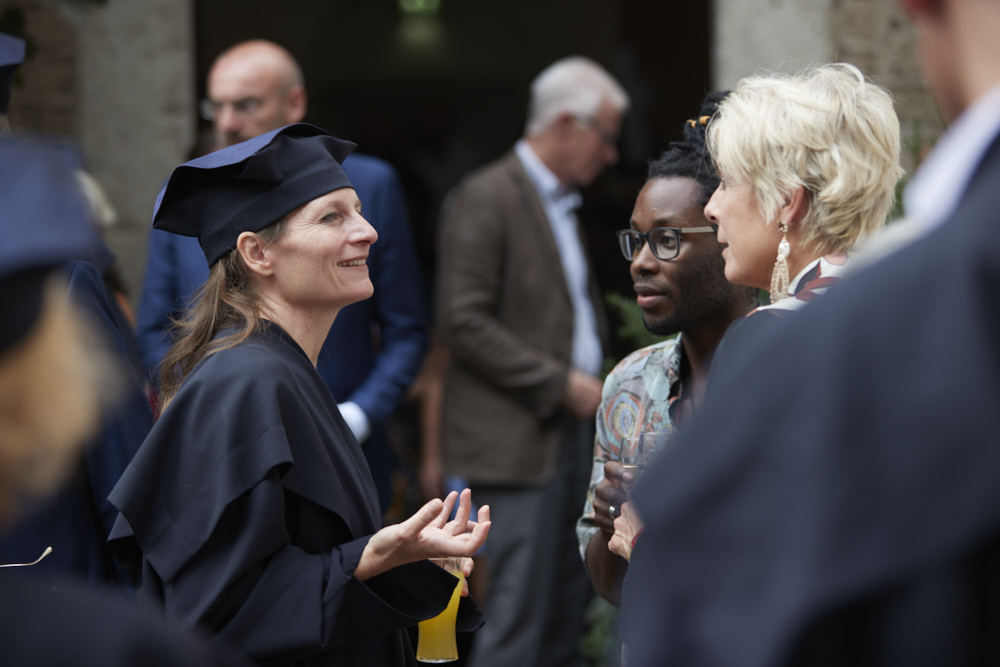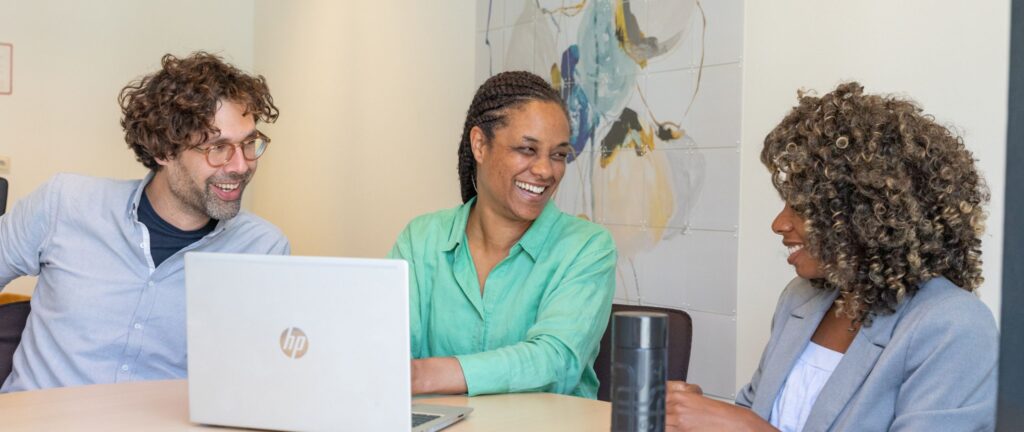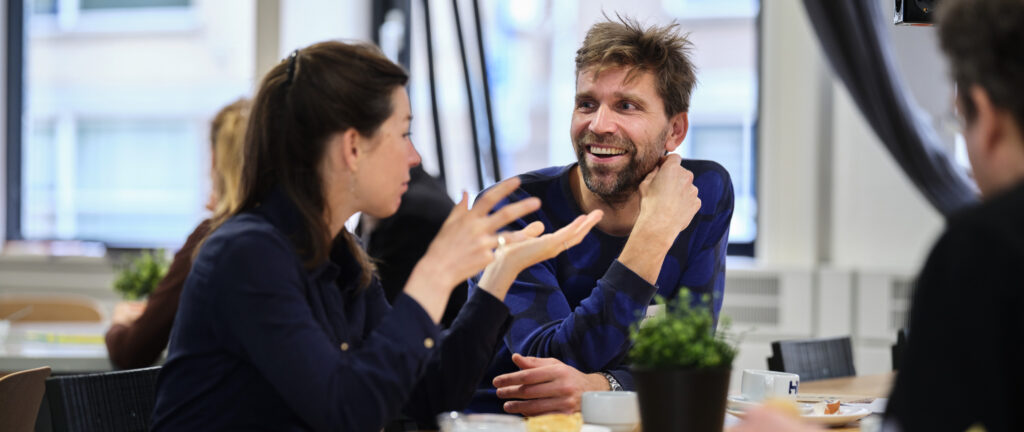Nicole L. Immler
Professor

- n.immler@uvh.nl
- Title
-
Prof. Historical Memory and Transformative Justice
Scroll directly to
Profile
Nicole Immler studied History, Media and Kulturwissenschaften at the University of Graz. She wrote her PHD on Das Familiengedächtnis der Wittgensteins (2005), a (meta)biographical study of Ludwig Wittgenstein and the concept of family memory. After working in the restitution panel at the ‘General Settlement Fund for Victims of National Socialism’ in Vienna, she did research as a Post-doc at the Austrian Academy of Sciences (IKT) in Vienna and Utrecht University (OGC) on The Afterlife of Restitution, examining with trans-generational interviews the effects of Austria’s restitution and compensation processes for victims of National Socialism and their families in four countries. With her research on Narratives of (In)Justice, supported by an ASPASIA fellowship from NWO, she was also a Marie Curie Fellow in the research program Understanding the Age of Transitional Justice: Narratives in a Historical Perspective at the NIOD Institute for War, Holocaust and Genocide Studies in Amsterdam.
As historian I am working on the afterlife of historical injustice (World War II, colonialism, slavery) in todays society, the relation between memory, identity and justice. My PhD theorized the concept of family memory (Das Familiengedächtnis der Wittgensteins), further developed in my Post-doc The afterlife of restitution, examining how former victims of National Socialism and their families experienced Austria’s compensation practices: analysing the dynamics between family memory and reparation policies. With my Marie Curie research on Narrated (In)Justice I moved from Holocaust and Memory Studies into Transitional Justice; exploring reparations to Dutch Jewry and post-colonial groups next to each other, showing how narratives of (in)justice are re-narrated across generations. Supported by a NWO-ASPASIA I explored the ‘Rawagede case’, a court case on Dutch military actions in Indonesia, with the puzzling question: ‘How to acknowledge colonial injustice?’ To date I focused on reparation questions in regard to historical injustice. My new project on Dialogics of Justice allows me to explore with an interdisciplinary team how recognition and repair works across cases.
Dialogics of Justice (VICI-NWO, 2000-2025) assesses recognition and reparation instruments for historical Injustice. When do people feel recognized? Over the last decade, we have witnessed a rising demand for recognition by victims of colonial violence or slavery, failed peace missions, sexual abuse and ecocide worldwide. With a team we explore civil court cases concerning these massive violences in the Netherlands, Indonesia, the Caribbean, Nigeria, and Bosnia, to answer the urgent need for more knowledge on making recognition procedures more effective. Operationalizing Nancy Fraser’s distinction between affirmative recognition and transformative recognition we aim to identify which recognition instruments rather affirm marginalized positions and power relations instead of transforming them.
Trauma & Resilience is an intergenerational Holocaust research from an existential perspective, aimed to reach beyond the traumatic. The three-generation interview research with Dutch Jewish families explores experiences of trauma, resilience, (moral) injury, generation, and recognition, analyzing processes of preserving or recovering a sense of meaning in life in the face of dehumanisation.
‘Going back with a mission‘ is an interdisciplinary research on the effects and the meaning of return trips by veterans to former Yugoslavia. This interdisciplinary study extends perspectives of psychiatry and psychology towards humanistic studies, spiritual care and ritual studies; and instead of focusing on individuals also the home front – the family perspective – is included in the analysis. Aim is to gain new knowledge about the potential role of rituals (such as return trips) in regard to recognition and repair.
Valorisation projects:
–Child Benefit Scandal: Societal repair for the child benefits scandal for the Ministry of Finance
–Violence in Youth Care: ‘Daadwerkelijk veranderen’. Evaluation of recognition measures for violence in youth care facilities for the Ministry of Justice and Security (WODC)
Keywords: reparations, recognition, transitional justice, transformative justice, generation, memory studies, oral history, Holocaust, Slavery, Colonialism, post-colonial Europe, (meta)biography, Ludwig Wittgenstein
Expertise
-
(meta)biography
-
colonialism
-
generation
-
Holocaust
-
Ludwig Wittgenstein
-
memory studies
-
oral history
-
post-colonial Europe
-
recognition
-
reparations
-
slavery
-
transformative justice
-
transitional justice
External positions
-
Member in Legal Mobilization Platform,Erasmus University Rotterdam
-
Member in consortium 'Social Imaginaries between Secularity and Religion in a Globalizing World (SIMAGINE)',NWO
-
Member in Reimagining Victims' Reparation Global Network (RVRGN)


